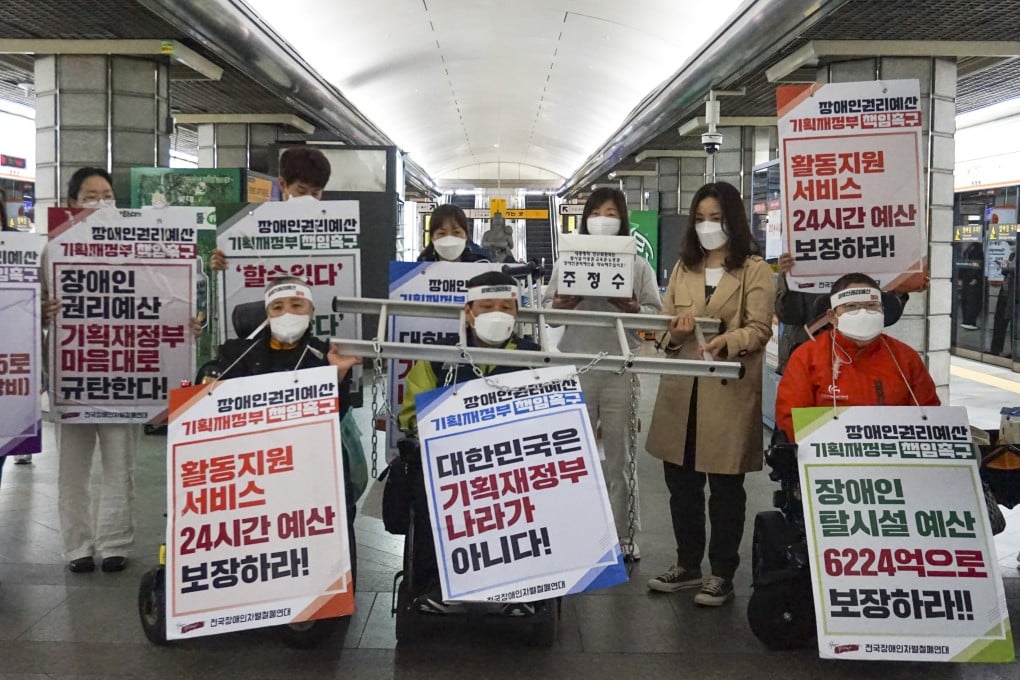South Korea’s disabled fight to be seen after decades of being denied basic rights
- Disability discrimination groups protesting on Seoul’s underground during peak morning commutes are continuing a decades-long struggle for recognition
- Institutional abuse, neglect, early death and lack of access to essential services and public areas are just some of the issues South Korea’s disabled face

In Seoul’s notoriously packed underground at peak travel time on a Monday morning, commuters look surprised as wheelchair-users try to gain access.
With the help of police and subway authorities, who put down a ramp for the wheelchairs, South Korean activists are continuing their fight for equal treatment for people with disabilities.
The Solidarity Against Disability Discrimination (SADD) and other groups have been protesting on Seoul’s undergrounds during peak morning commutes since early December, in what they say is a decades-long fight. Some activists get out of their wheelchairs and crawl inside trains, while others prevent them from departing by jamming the doors open with their wheelchairs.
On this particular Monday morning, Joo Jung-soo, the head of Dong-Seoul Centre for Independent Living, joins his fellow activists as they shave their heads in a show of protest. The government had failed “to provide basic rights during my 67 years living as a disabled person”, he said.
The number of institutions provided for the disabled has increased over the years, but their quality has not. According to data from the health ministry last year, more than 50 per cent of disabled people living in residential facilities died before reaching the age of 50 while 32 per cent died in their 20s or 30s.